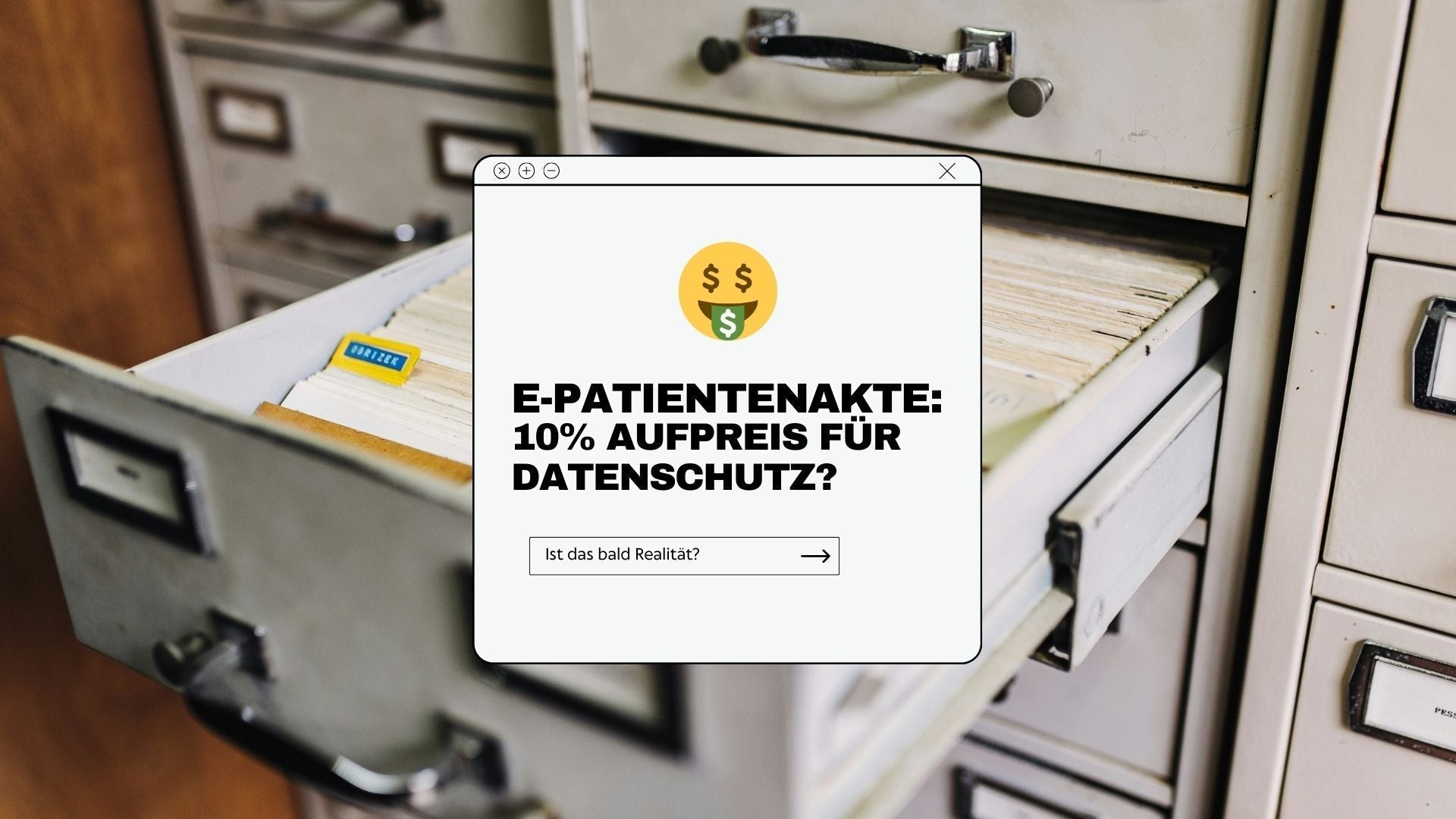Your Medical Data in the Cloud – Safe or Sorry? The Truth About the ePA

The Electronic Health Record (ePA): A Digital Leap — or a Privacy Trap?
Germany’s new electronic health record (ePA) is meant to modernize healthcare — but privacy experts, doctors, and patients are sounding the alarm.
So the question is: Are our most sensitive data really safe?
What is the ePA — and Why Is It Controversial?
Introduced at the beginning of the year, the electronic health record (ePA) is a core element of Germany’s digital health strategy. Its goal is to make medical data — such as diagnoses, test results, or medication plans — digitally available at all times to doctors, hospitals, and patients.
But that’s exactly where the problems begin:
The Chaos Computer Club (CCC) uncovered serious security vulnerabilities. A research team managed to access ePA records without needing a health card or PIN¹. All it took was an insurance number and a few personal details to create and access patient accounts.
Risks for Particularly Vulnerable Groups
According to Apotheken Umschau, people with mental health conditions should be especially cautious².
Experts recommend they opt out of the automatic data upload into the ePA. Why? Because this type of data is highly sensitive — and if misused, it could lead to discrimination, e.g. during job applications, insurance decisions, or in social settings.
Privacy Concerns: Are Our Data Truly Protected?
The German government promises strong data protection — but security experts like Bianca Kastl warn: the current safeguards are not sufficient¹.
The fact that hackers gained access without a card has already undermined public trust in the new system.
Adding to the controversy: CDU politician Friedrich Merz proposed during the election campaign that those who voluntarily share their health data should receive a 10% reduction in health insurance premiums.
Critics warn this could put pressure on vulnerable groups, such as people with HIV, depression, or addiction, to give up their privacy in order to save money².
Automatic Setup — Without Your Active Consent
Another major issue: In many cases, the ePA is automatically activated — even if patients never gave explicit consent.
If you don’t want this, you must actively opt out — a reversal of the standard principle that sensitive health data requires explicit opt-in consent.
Patients also have limited control over their own data.
You can’t choose where your data is stored or who exactly gets to see what. Access permissions are only broadly defined — usually at the document level, not by individual data points.
This means, for example, a physical therapist could potentially view more information than is necessary for your treatment.
Who Can Access Your Data?
It’s not just doctors who can access the ePA.
Non-medical staff in clinics and practices — such as receptionists — may also view the contents.
In addition, ePA data may be transferred to a central research database — even without your explicit consent.
While the government promises pseudonymization, experts warn it may not be enough to prevent personal identification.
Technical Dependency on Google & Apple
Another concern: Technical dependence on Big Tech.
The ePA can only be managed via apps that run exclusively on Apple or Google platforms.
This means Germany’s digital health infrastructure is reliant on U.S. corporations, opening the door to potential data exposure and tracking risks.³
What Can You Do?
You have the legal right to opt out of automatic data uploads to the ePA — and you should carefully weigh this decision.
Especially if you have sensitive diagnoses or lack trust in the system, caution is advised.
Ask your health insurance provider about opt-out options.
Tips for Using the ePA Responsibly:
✅ Get fully informed before agreeing to use it.
✅ Discuss data handling with your doctor or therapist.
✅ Use your right to opt out of transferring older records.
✅ Avoid granting access to unnecessary third-party apps or add-on services.
Conclusion:
The idea behind the ePA is promising — more transparency, less paperwork, better care.
But its implementation raises critical questions.
Sensitive health data deserves the highest level of protection.
As a patient, you have the right to be informed, to have control, and to opt out.
Use it.
Sources:
-
Tagesschau.de (2024): ePA: Sicherheitslücken bei elektronischer Patientenakte entdeckt
-
Apotheken Umschau (2024): Elektronische Patientenakte: Psychisch Erkrankte sollten lieber widersprechen
-
Gesellschaft für Informatik (2024): ePA: Datenschutzrechtliche Bedenken











Comments